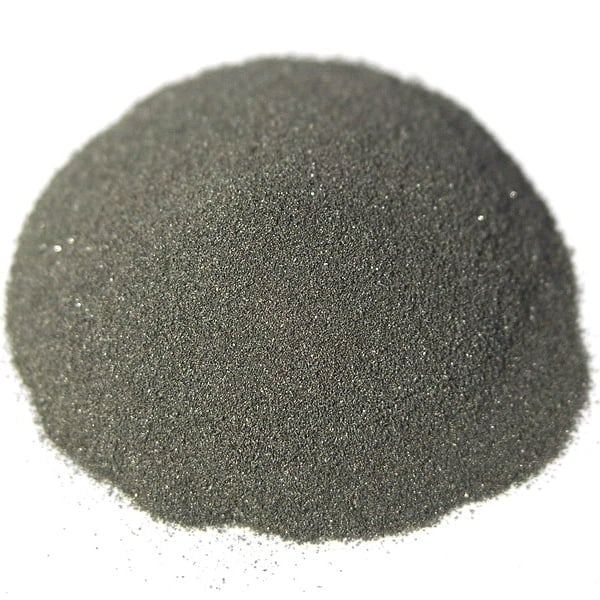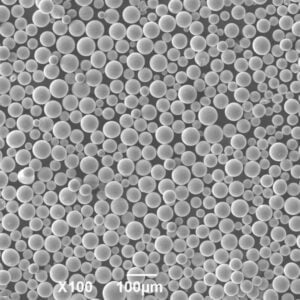
Zuiver titaniumpoeder
Overzicht van zuiver titaniumpoeder Titaanpoeder is een metaalpoeder gemaakt van titaniummetaal. Het wordt gekenmerkt door zijn hoge sterkte-gewichtsverhouding, corrosiebestendigheid en biocompatibiliteit. Titaanpoeder heeft verschillende toepassingen in industrieën zoals lucht- en ruimtevaart, de medische sector, de auto-industrie en consumentenproducten. Dit artikel biedt een uitgebreide gids over titaanpoeder. Het behandelt de samenstelling,...
Klein MOQ
Flexibele sourcing voor honderden producten
Ondersteuning voor maatwerk
Aangepast poeder volgens de industrie
Snelle verzending
Per DHL Express, veilig en snel in uw handen
Overview of Pure Titanium Powder
Titanium powder is a metal powder made from titanium metal. It is characterized by its high strength-to-weight ratio, corrosion resistance, and biocompatibility. Titanium powder has diverse applications across industries such as aerospace, medical, automotive, and consumer products.
This article provides a comprehensive guide to titanium powder. It covers the composition, properties, applications, specifications, suppliers, handling, inspection, comparisons, pros and cons, and frequently asked questions about titanium powder. Quantitative data is presented in easy-to-read tables for quick reference.
Composition of Titanium Powder
Titanium powder can be pure titanium or an alloy containing titanium as the main element. The composition determines the properties and applications.
| Compositie | Details |
|---|---|
| Puur titanium | Contains >99% titanium. Lowest strength but excellent corrosion resistance. |
| Ti-6Al-4V | 6% aluminum, 4% vanadium. Most common titanium alloy with high strength. |
| Ti-3Al-2,5V | 3% aluminum, 2.5% vanadium. Higher ductility than Ti-6Al-4V. |
| Ti-6Al-7Nb | 6% aluminum, 7% niobium. Higher strength for aerospace applications. |
| Ti-15Mo-3Nb-3Al-0.2Si | 15% molybdenum, 3% niobium, 3% aluminum, 0.2% silicon. Beta titanium alloy. |
Titanium powder can also be blended with other elemental powders like iron, aluminum, or boron to create customized alloys.
Properties of Titanium Powder
The unique properties of titanium make it suitable for demanding applications across industries.
| Onroerend goed | Beschrijving |
|---|---|
| hoge sterkte | Has excellent strength-to-density ratio, close to high strength steels. |
| Lage dichtheid | Weighs 60% less than steel or nickel alloys. |
| Weerstand tegen corrosie | Forms stable TiO2 oxide film for corrosion protection. |
| biocompatibel | Non-toxic and compatible with human body tissues. |
| Hittebestendigheid | Maintains mechanical properties up to 600¡«C. |
| Niet magnetisch | Useful for non-magnetic applications. |
| Non-sparking | Safer for flammable environments compared to steel. |
The properties can be tuned by changing the composition, grain size, porosity, and processing method.

Toepassingen van titaniumpoeder
The versatile properties of titanium powder enable unique applications in the following industries:
| Industrie | TOEPASSINGEN |
|---|---|
| Lucht- en ruimtevaart | Engine components, aircraft structures, space vehicles |
| Medisch | Implants, surgical instruments, medical devices |
| Automobielen | Connecting rods, valves, springs, fasteners |
| Chemische | Corrosion resistant vessels, heat exchangers, pipes |
| Sporting goods | Golf clubs, tennis rackets, bicycles, helmets |
| additive manufacturing | Aerospace, automotive, and medical 3D printed parts |
Titanium’s biocompatibility makes it ideal for implants and medical devices. Its corrosion resistance suits it for seawater applications. The high strength is useful for critical components in aerospace.
Specificaties van titaniumpoeder
Titanium powder is available in different size ranges, shapes, purity levels, and composition to suit specific applications.
| Parameter | Specificaties |
|---|---|
| Deeltjesgroottes | 15-45 microns, 45-105 microns, 105-250 microns |
| Vorm van deeltjes | Spherical, angular, mixed morphology |
| Zuiverheid | Grade 1 (99.2% Ti), Grade 2 (99.5% Ti), Grade 4 (99.9% Ti) |
| Alloy grades | Ti-6Al-4V, Ti-6Al-7Nb, Ti-64, Ti-1023 |
| Productiemethode | Gas atomization, plasma atomization, hydride-dehydride |
The particle size distribution, morphology, oxygen/nitrogen content, and microstructure are controlled as per application requirements.
Suppliers of Titanium Powder
Titanium powder is supplied by leading metal powder manufacturers globally:
| Provider | Locatie |
|---|---|
| AMETEK | Verenigde Staten |
| AP&C | Canada |
| TLS Techniek | Duitsland |
| Tekna | Canada |
| Metalysis | VK |
| Praxair | Verenigde Staten |
| Rio Tinto | Canada |
| ATI Powder Metals | Verenigde Staten |
| CNPC Powder Group | China |
Titanium powder prices range from $50/kg to $500/kg based on purity, particle size, production method, and order volume. Custom alloys, special particle morphologies, and strict tolerances cost more.
Handling and Storage of Titanium Powder
Special precautions are needed when handling titanium powder to prevent fires, explosions, and property damage:
- Store in cool, dry, inert environments away from moisture, sparks, and flames
- Use conductive containers grounded to prevent static charge buildup
- Local exhaust ventilation is recommended to control dust
- Avoid dust accumulation to minimize explosion hazard
- Wear dust masks, safety goggles, gloves to prevent inhalation and skin contact
- Follow material safety data sheet (MSDS) instructions for safe handling
Inspection and Testing of Titanium Powder
Titanium powder batches are tested to ensure they meet the required material specifications:
| Testmethode | Parameter Measured |
|---|---|
| Zeefanalyse | Particle size distribution |
| Laserdiffractie | Particle size distribution, mean size |
| Rasterelektronenmicroscopie | Particle morphology, microstructure |
| Energie-dispersieve röntgenspectroscopie | Chemische samenstelling |
| Röntgendiffractie | Phase composition |
| Spectrophotometry | Oxygen, nitrogen, hydrogen content |
| Tapdichtheid | Apparent density, flowability |
| Pycnometer | Skeletal density |
Sampling and testing as per ASTM standards ensures titanium powder quality for critical applications.
Comparing Titanium Powder to Alternatives
Titanium has advantages and disadvantages compared to substitute materials:
| Titanium | Aluminium | RVS | |
|---|---|---|---|
| Dichtheid | Laag | Lager | Hoger |
| Kracht | Hoog | Medium | Hoog |
| Weerstand tegen corrosie | Uitmuntend | Goed | Goed |
| Temperature resistance | Goed | Medium | Betere |
| Kosten | Hoog | Laag | Medium |
| Magnetic permeability | Laag | Laag | Hoog |
| biocompatibel | Uitmuntend | Slecht | Goed |
Titanium stands out for its corrosion resistance and biocompatibility despite its higher cost. Aluminum and stainless steel may be cheaper alternatives depending on application requirements.
Pros and Cons of Titanium Powder
| Voordelen | Nadelen |
|---|---|
| Hoge sterkte-gewichtsverhouding | Expensive compared to steels |
| Roestbestendig | Reactivity with oxygen at high temperatures |
| Niet giftig en niet allergeen | Low elastic modulus can mean springback in machining |
| Uitstekende biocompatibiliteit | Low thermal conductivity |
| Behoudt eigenschappen bij hoge temperaturen | Requires inert atmosphere processing |
| Wide range of alloying possibilities | Limited high temperature strength |
Titanium powder enables lightweight, strong parts but requires controlled handling and processing. Cost is higher than conventional alloys.
Frequently Asked Questions about Titanium Powder
Here are answers to some common questions about titanium powder:
Q: What is titanium powder used for?
A: Titanium powder has uses across aerospace, medical, automotive, chemical, and sporting goods due to its high strength, low weight, corrosion resistance, heat resistance, and biocompatibility. It is commonly used for critical rotating parts in aircraft engines, orthopedic implants, automotive components, heat exchangers, and additively manufactured parts.
Q: Is titanium powder safe to handle?
A: Titanium powder can ignite and explode when very finely divided and exposed to air. Proper grounding, inert atmosphere, ventilation, and protective equipment are essential when handling titanium powder. It is also non-toxic and hypoallergenic on skin contact.
Q: What is the difference between Grade 1 and Grade 5 titanium powder?
A: Grade 1 titanium powder has higher purity with lower oxygen and iron content compared to Grade 5. Grade 1 provides better corrosion resistance while Grade 5 offers higher strength. Grade 5 powder would be used where strength is critical while Grade 1 suits chemical resistance needs.
Q: Does titanium powder rust?
A: Titanium forms an impervious and self-repairing oxide layer that protects it from rusting and corrosion. It exhibits excellent corrosion resistance in most environments including saltwater. This property makes it suitable for marine applications.
Q: Is titanium powder magnetic?
A: No, titanium powder is non-magnetic. Its relative magnetic permeability is very close to 1 which makes it useful for non-magnetic applications instead of ferritic steels.
Q: What is the cost of titanium powder?
A: Titanium powder can range from $50/kg to $500/kg depending on purity, particle size, production method, morphology, and order volume. High purity grades suitable for medical use are more expensive. Custom alloys and special particle shapes also cost more.
Q: What is the difference between gas atomized and hydride-dehydride titanium powder?
A: Gas atomized titanium powder has a spherical morphology ideal for additive manufacturing while hydride-dehydride powder has an angular, irregular shape suited for pressing-and-sintering. The powder properties, surface chemistry, microstructure and cost differ for the two production methods.
Q: How is titanium powder produced?
A: The main production methods are gas atomization, plasma atomization, and hydride-dehydride process. Gas atomization using argon or nitrogen gas is a common method to produce fine spherical powder for AM. The hydride process generates angular powder for pressing into shapes before sintering. Plasma atomization can produce very fine spherical powders.
Q: What are the contents of a titanium powder material safety data sheet (MSDS)?
A: The MSDS will have health hazard information, reactivity data, toxicological data, handling precautions, storage information, spill procedures, firefighting instructions, first aid measures, and disposal guidelines. It is critical to review the MSDS before working with any amount of titanium powder.
Q: What standards apply to titanium powder?
A: De belangrijkste standaarden zijn ASTM B833 voor sferisch titaniumpoeder, ASTM B981 voor titaniumlegeringen voor poedermetallurgie, ASTM B988 voor gasverneveld titaniumlegeringspoeder en ISO 22068 voor additieve vervaardiging met titaniumlegeringen. De specificaties hebben betrekking op bemonstering, testen, grootteanalyse, chemische analyse en kwaliteitsborging.
Neem nu contact met ons op
Neem contact met ons op voor recente productoffertes en beschikbaarheid van voorraad.
